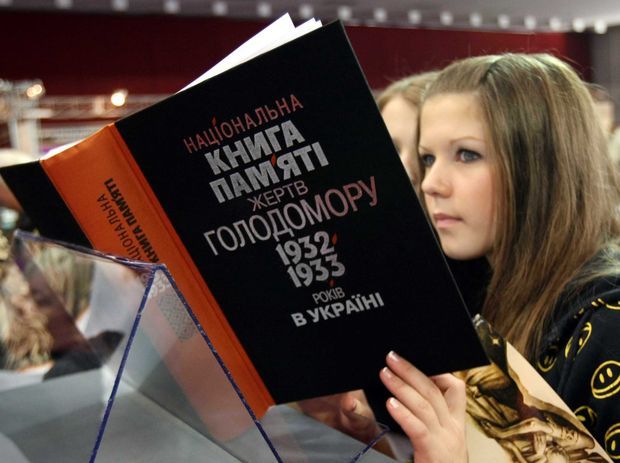Ukrainian history textbooks are to be revised
They will feature again treatment of the Holodomor as a genocide as well as coverage of the Organization of Ukrainian Nationalists and the Ukrainian Insurgent Army’s activities, while the term “Great Patriotic War,” by contrast, may disappear from their pages
Revisions will only apply to textbooks for grades 10 and 11. They will feature those terms or stories that were removed from the school curriculum during minister of education Dmytro Tabachnyk’s time in office. Most importantly, the section covering the Holodomor will insist that it was genocide of the Ukrainian people. School kids will also study a tragic page in the Crimean Tatars’ history which was the deportation of the entire people from the peninsula, while information about the activities of the OUN and UPA as well as political prisoners’ participation in the 1953-54 uprisings in Stalinist forced labor camps will make a comeback too. The textbooks will also include coverage of the fate of Ukrainian dissidents, such as Levko Lukianenko, Viacheslav Chornovil, and Ivan Dziuba.
However, it has been the Ministry of Education and Science (MES)’s intent to strike “the Great Patriotic War” from the textbooks that has caused most dramatic public response. This page of history will be covered in the section entitled “The Second World War.” Some experts agree that the term “GPW” was created artificially to have all Soviet nations to unite under one slogan and concept. However, the Ukrainian nation participated in hostilities since September 1, 1939, and had its members fighting on opposite sides of the front.
“The term ‘the Great Patriotic War of the Soviet Union’ was coined by Joseph Stalin in advance of June 22, 1941, when the war broke out. It was to be a war for expanding the boundaries of ‘the Socialist fatherland’ as provided for in the official anthem of the Comintern, which reads ‘Our slogan is the global Soviet Union,’” Serhii Hrabovsky wrote in the article posted on the MES’s website. “The term should be retained with this meaning only, while limiting Ukraine’s story to it, to the events that happened between June 22, 1941 and May 8, 1945 (which was the real V-E day, as recognized by Stalin himself) is vile and blasphemous. For non-Soviet Ukrainians, the war with Adolf Hitler began on the morning of September 1, 1939, when a hundred thousand Ukrainian soldiers of the Polish Armed Forces fired on invading Hitlerite troops, and planes with emblems of the cross on their wings bombed Lviv, Lutsk, and Ternopil.”
Opponents of the term replacement contend that teachers and students would have to adapt to changes and revisions in the school curriculum once again, and the GPW was the description that united the nation back then. Either way, the discussion of these and other revisions has not yet ended. The MES will take suggestions from the public till August 20. The ministry has not stated yet when the revised textbooks will be published. As previously reported, its budget will be reduced by a large amount, and it is unclear whether it will have enough money left to fund a revised edition of the textbooks.
Historian and author of textbooks Stanislav Kulchytsky suggested that ministry would do better by taking a simpler path: instead of rewriting the textbooks, it may publish separate supplements for students and teachers, reflecting all these revisions. It will be faster and cheaper. Historians acted this way on the contemporary history of 2010-14, including the Euromaidan and annexation of Crimea, as they prepared a separate supplement for students and teachers, complementing the existing textbooks for grade 11. This supplement will be published as soon as October and distributed to schools.
“For now, this supplement is the most important revision that we need to do to the school history texts. Regarding Tabachnyk’s amendments, they were done very carefully, because his team stroke down individual sentences instead of removing entire sections. What to do with it now is hard to say, because publishing a revised textbook costs money, while the existing textbooks were designed for several years’ use. They will be used throughout that time, and I see nothing wrong with that. Even if they do not say that the Holodomor was a genocide, the teacher is free to emphasize this point. It is not just my opinion. Most importantly, we need to revise the curriculum, because it is easier to make changes there. This means that even when there is nothing about the genocide or the UPA in the book, the teacher will be obliged to cover these topics and discuss them in the classroom,” Kulchytsky added.
Once again, historians emphasize that dramatic and quick rewriting of history textbooks is not necessary, even if Russia started to do so after the occupation of Crimea. We must allow time for a rethink to take place, because history as a discipline does not respond well to rushed efforts.






